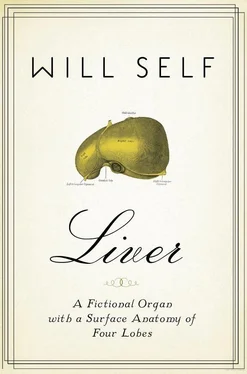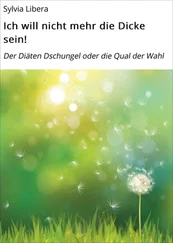All this clicked through Joyce’s mind with tight precision as she listened to Reiter. She was making the kind of assessments that had been integral to her work as a high-level administrator; an analysis of ways and means and motives that, since retirement, had seized up to become mere crankiness. Sitting on her Modernist throne, Joyce was empowered to make statements ex cathedra .
‘So’ — she put a stop to the Papal Chaplain — ‘because I don’t look as if I’m dying, you want — you want to believe — that I may’ve been subject to’ — she savoured the phrase — ‘a suspension of natural law.’
Quoad modum ,’ Reiter said succinctly. ‘This is the third class: a‘ recovery from a fatal, progressive malady that is spontaneous, and that, even if it could be managed by medicine, would take a long time and a lot of resources. Yes, Joyce, we do believe this may have happened to you.’
Fac eas, Domine, de morte Iransire ad vitam. Allow them, O Lord, to cross from death into the life. Joyce laughed heartily again — and although the lay Catholics grimaced, she was pleased to see Reiter joining in her secular merriment. ‘And how, may I ask, did Frau Stauben’s daughter perform this, ah. ’ She fluttered her fingers in allusion to the politically incorrect miracle. Mors slopebit et natora, Cum resurget creatura, Judicanti res-pon-sura. The awesome phrases wormed their way into her inner ear.
‘Here are two things for you,’ Reiter said. ‘First thing. You may not be familiar with what Catholics believe here; these intercessions can occur years later, called forth — provoked, if you prefer — by the prayers of the faithful. Second thing. On the evening that you met with Herr Weiss, Marianne Kreutzer and Father Grappelli. well, this little chapel by the Lindenhof, it is — it has become — entirely unofficially, of course — a lot like a shrine for Frau Stauben’s daughter. Most days’ — he looked to Weiss for confirmation and the otter head dipped — ‘they go to pray there.’
Joyce had a vision of the power ‘provoked’ by their prayers: a neon thunderbolt that shot along the dull Zürich boulevards. It zapped into the flat at 84 Gertrudstrasse, where Joyce sat with Dr Hohl, and, by snapping open her jaw, helped to stay the assister-of-suicide’s hand, before playing up and down her abdomen — crackling purple veins on the glassy skin of a van de Graaff generator — irradiating her diseased liver with the entirely free, and on demand, X-rays of faith.
They were all staring at her. Reiter had stopped speaking; Vreni Stauben was cradling the framed photograph of the dead girl, which she had retrieved from her own domestic shrine. Thinking back to her foolish confidences at the Kronenhalle, Joyce said, ‘I’m not a fool, you know — ’ Weiss sucked air sharply, but there were limits to Treu und Glauben and she pressed on: ‘This strikes me as a very smart. very political move on the part of the deity, given what Herr Weiss told me about Dr Hohl’s organization, the city’s government, the Catholic majority here in Zürich — and so forth.’
Reiter sat forward, gathering his skirts over his knees, an action at once sexless and coquettish. He pressed his slim white hands together and brought them up in front of his long expressive face. Joyce thought of Phillimore, who, with his flaxen fringe thatching farmer’s features, was a peasant compared with this princeling of the Vatican.
‘You are entirely astute, Joyce,’ Reiter said. ‘And, although there is nothing to prevent the Lord involving himself in the minutiae of local government, I concede that from outside the Church this would appear very. well, worldly.’
Joyce decided she was going to enjoy doing business with Monsignor Reiter — and business it was most definitely going to be. His English, of course, was far too good — especially for an Englishman. It made everything he said pitilessly clear: ‘Should you decide to cooperate with our investigation, the medical examinations, any treatment you require, accommodation — also a per diem: all of these we would help you with.’
‘I don’t really object to Dr Hohl’s activities at all,’ Joyce shot back at him. ‘Otherwise I wouldn’t have gone to him. On the contrary, I think he and his organization are doing good work — giving people a real choice.’
Weiss’s eyes were popping, and Vreni Stauben caught a sob in her fat cheeks, but Reiter was unperturbed. ‘It isn’t really a question of conviction, Mrs Beddoes,’ he said judiciously. ‘It’s more a matter of finding common cause. Besides, the primary objective here is not to campaign against assisted suicide’ — this phrase he couldn’t forbear from grimacing over: bitter pips — ‘but to investigate events of an overpoweringly spiritual nature: the evidence of God working through humanity.’
‘I understand that,’ Joyce remarked succinctly, although she didn’t believe for a second that Ueli Weiss’s prayers to Vreni Stauben’s dead daughter had cured her of cancer. This odd feeling — not of health but of a kind of competent nullity — was simply a mundane plateau covered with a dusty rug, on all sides of which the abyss still fell away, deep and dark and deadly. Vreni Stauben’s wombless Birman came padding into the room and over to where Joyce sat. It looked at her with its stupid vain eyes.
Ueli Weiss began talking with his tone of slightly egregious, boyish competence. The necessary tests, he said, could take weeks — perhaps months. Even if Joyce was in a position to demonstrate that she had considerable — and liquid — assets, obtaining a Nieder-lassungsbewilligung , or type C residence permit, from the federal government might still prove impossible, given her condition. But he, Weiss, in conjunction with the diocese, had access to the best immigration lawyers; and there seemed to them to be a prima facie case for Joyce claiming refugee status.
‘Refugee status?’ Joyce goggled at Weiss, who today was sporting a well-cut flannel suit in a highly neutral shade of blue. ‘What exactly am I seeking refuge from, the NHS?’ The Swiss looked blank, so she elaborated, ‘The medical care in England, I mean.’
‘No, no.’ Weiss remained in earnest. ‘We are thinking that you are asking for the Asylberechtigung from Hohl, his people — the pressure they made to kill yourself.’
I was subject to no pressure or duress by anyone. ‘But they have safeguards for this, a tape recording, a contract — ’
‘So, so, we know this, nat ü rlich . ’ He went on, reassuring Joyce that there would be no fuss — that wasn’t the way things were done in Zürich. It would be a case of back-door representations, informal interviews, the subtle influencing of politicians and jurists. There was a case to be made — of that much they were certain; the shifting demographic of religious affiliation in the canton chimed with a gathering nationalism. You are seeing our new kind guests. Black guests, brown guests . How ironic, she thought, me and Isobel’s Tamil friend. Two of a kind .
Joyce was surprised that Monsignor Reiter ceded all this suasion to the unpersuasive Weiss. Despite this, she had resolved to go along with them before he eventually finished speaking. She couldn’t have said what her motivation was; certainly, it had nothing to do with their aims, while her own were inchoate. This wasn’t, it occurred to Joyce, as they all stood and tramped down the dim corrider to dead Gertrud’s Zimmer , to do with ends at all; but, rather, means: the filling out of forms would fill in otherwise featureless days. There would also be appointments to attend — this would be comforting , a small sort of part-time job . And then there was the prospect of her own flat. I’ve got to get away from this bloody cat!
Читать дальше












